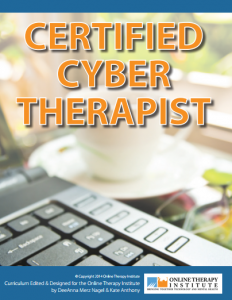This article is a great look into an earlier writing from 2000 about online therapeutic relationships. This was written by Kate Anthony and was the thesis submitted as part of requirements toward her MSc in Therapeutic Counselling.
Abstract
The nature of the Online Therapeutic relationship is one that has previously been thought to be untenable by the Counselling industry due to the lack of the bodily presence and therefore the subtlety that accompanies voice, body language and congruence of the spoken word. This study sets out to explore three main research questions through Online interviews with seven Online Counsellors and one Online client. These were: how do they perceive their relationship as therapeutic, how do they compensate for the lack of visual and auditory clues, and whether the typed word can convey the sort of therapeutic intervention that may be called Counselling. The results were analysed from a relationship model point of view, specifically the I-You (or core) relationship. The results yielded four main themes as being essential to the Online relationship for it to be considered therapeutic: rapport via the client’s mental constructs of the world; presence – the perception that a mediated session is non-meditated; the openness that takes place when communicating over the Internet; and the quality of the written communication/knowledge of “netiquette”. Two further findings were issues of fantasy about the person you are in communication with, and an understanding of the opportunity and anonymity the Internet affords from a client perspective. The study concludes that from a relationship model stance, the Online relationship between client and Counsellor is therapeutic and may be considered Counselling through a medium-led, text-based orientation.
….


